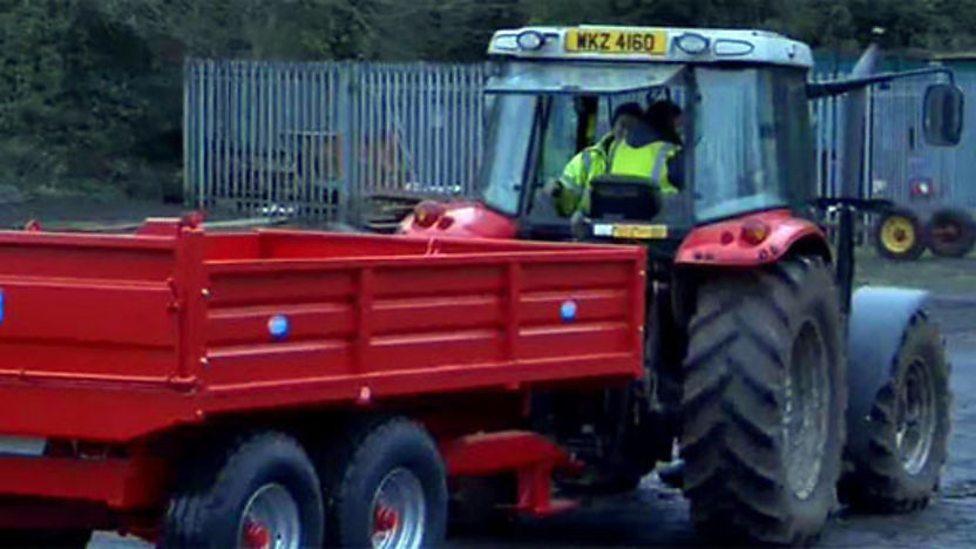Fees likely to rise at NI's only agricultural college
- Published
- comments

Most students at CAFRE pay fees of £1,600 per year at present
Hundreds of degree students at Northern Ireland's only agriculture college are facing possible changes to the cost of their course fees.
At present, most pay £1,600 a year, compared to university fees of about £4,000 per annum.
But there are now six proposals for a new fees structure at the College of Agriculture, Food and Rural Enterprise (CAFRE).
The options have been put out to public consultation., external
They include everything from maintaining the existing system - through increasing fees to the current university level - to abolishing them altogether.
However, under the most likely scenarios, degree students could see course fees rise to up to £4,275 a year.
Disparity in current fees charged
CAFRE offers 14 higher level courses on three campuses around Northern Ireland, at Antrim, Cookstown and Enniskillen.
About 700 full and part-time students were enrolled on the courses last year.
CAFRE's costs are about £20m a year with education services accounting for about £9m of that.
The income from higher education fees brings in around £850,000.
A review also found there was a disparity in fees charged at CAFRE depending on whether or not courses were affiliated with a university partner.
It means that while most students are charged £1,600, some face annual fees of £4,000, and at present, part-time degree courses and postgraduate courses do not charge any fee.
Consultation open until April
The colleges' higher education fees are currently the lowest of all course providers in Northern Ireland, and of any other institution in Scotland, Wales, England and the Republic of Ireland.
Differentiated fees would see students charged varying amounts for their courses depending on the cost of delivering it and the earning potential it delivers.
The plan has already been the subject of a consultation with stakeholders from the farming, food and education sectors.
The public consultation is now open and closes on 12 April.
- Published20 March 2015
